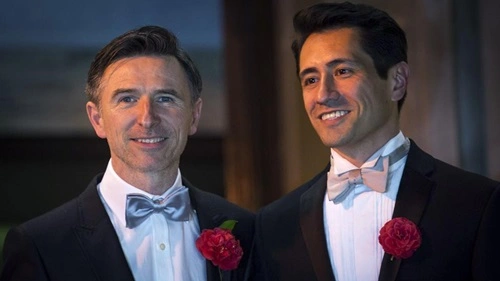No, gay marriage is not yet legal in India. While homosexuality has been decriminalized under Section 377 of the Indian Penal Code (IPC), the legal recognition of same-sex marriages is still pending. Efforts are underway to address this issue, with ongoing debates in courts and society.
Legal Status of Same-Sex Relationships in India

- Decriminalization of Homosexuality:
- In the landmark judgment of Navtej Singh Johar vs. Union of India (2018), the Supreme Court decriminalized consensual homosexual relationships by reading down Section 377 of the IPC. This was a significant step in recognizing the rights of LGBTQ+ individuals in India.
- The judgment affirmed the Right to Equality (Article 14) and the Right to Life and Dignity (Article 21) for LGBTQ+ individuals.
- Absence of Marriage Rights:
- Despite the decriminalization of homosexuality, same-sex couples do not have the legal right to marry, adopt, or inherit as a couple in India.
- Marriage laws in India, such as the Hindu Marriage Act, 1955, Special Marriage Act, 1954, and others, are currently defined for heterosexual couples.
Efforts to Legalize Gay Marriage in India
- Petitions in Courts:
- Several petitions have been filed in Indian courts seeking legal recognition of same-sex marriages under the Special Marriage Act, 1954.
- Petitioners argue that denying marriage rights to same-sex couples violates constitutional guarantees of equality, non-discrimination, and dignity.
- Judicial Observations:
- The Supreme Court and High Courts have acknowledged the evolving societal acceptance of LGBTQ+ rights and have encouraged legislative action to address the issue.
- Government’s Stance:
- The central government has expressed reservations about same-sex marriage, citing societal and cultural norms. It argues that marriage is traditionally defined as a union between a man and a woman.
Challenges for Same-Sex Marriage Legalization
- Social Stigma:
- Same-sex relationships still face significant stigma and discrimination in many parts of India.
- Lack of Legislative Action:
- While the judiciary has shown progressive intent, legislative action to amend marriage laws or introduce specific laws for same-sex marriage is lacking.
- Cultural and Religious Opposition:
- Many cultural and religious groups oppose the idea of same-sex marriage, citing traditional beliefs.
Rights Currently Available to LGBTQ+ Couples in India
- Right to Live Together:
- The courts have upheld the right of same-sex couples to live together under the Right to Life and Personal Liberty (Article 21).
- Recognition of Relationships:
- Some High Courts have directed authorities to recognize same-sex relationships for limited purposes, such as property disputes or police protection.
International Perspective
- Many countries, including the United States, Canada, Germany, and Australia, have legalized same-sex marriage.
- India’s LGBTQ+ activists argue that legalizing same-sex marriage would align India with international human rights standards.
Recent Developments
- Increased Awareness:
- Advocacy groups and social media campaigns are raising awareness about LGBTQ+ rights and the importance of marriage equality.
- Court Hearings:
- In 2023, the Supreme Court began hearing petitions seeking legalization of same-sex marriage under the Special Marriage Act, sparking widespread public debate.
- Corporate Support:
- Several multinational companies in India have started recognizing same-sex partners for employee benefits, signaling growing acceptance.
Conclusion
While homosexuality is decriminalized in India, same-sex marriages remain unrecognized under Indian law. The path to legalizing gay marriage involves overcoming societal resistance, legislative inertia, and judicial deliberations. Advocates for marriage equality emphasize that recognizing same-sex marriages is essential for ensuring equal rights, dignity, and non-discrimination for LGBTQ+ individuals. The outcome of ongoing legal and social efforts will shape the future of marriage equality in India.
Hina Abbasi is Editor and a passionate sports and entertainment content writer at WinnersMaze.com. Hina’s expertise spans across a wide range of sports, and interest in many TV shows allowing her to deliver insightful analysis and compelling stories that resonate with readers.

